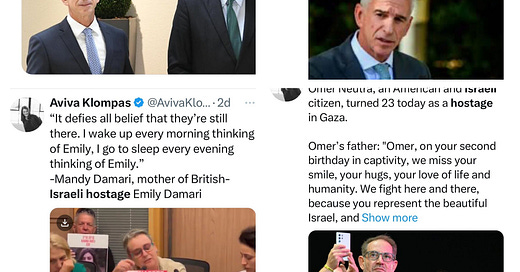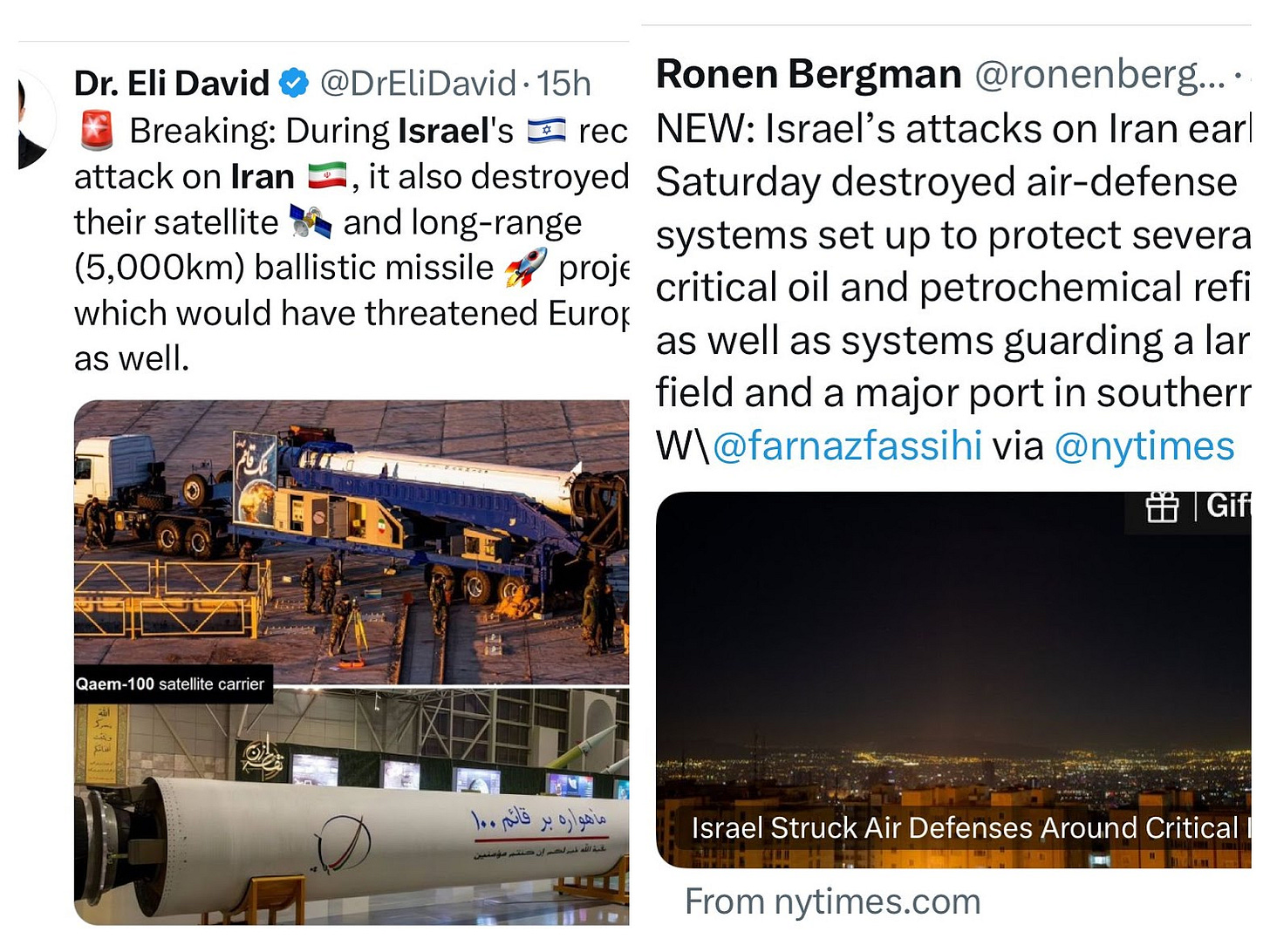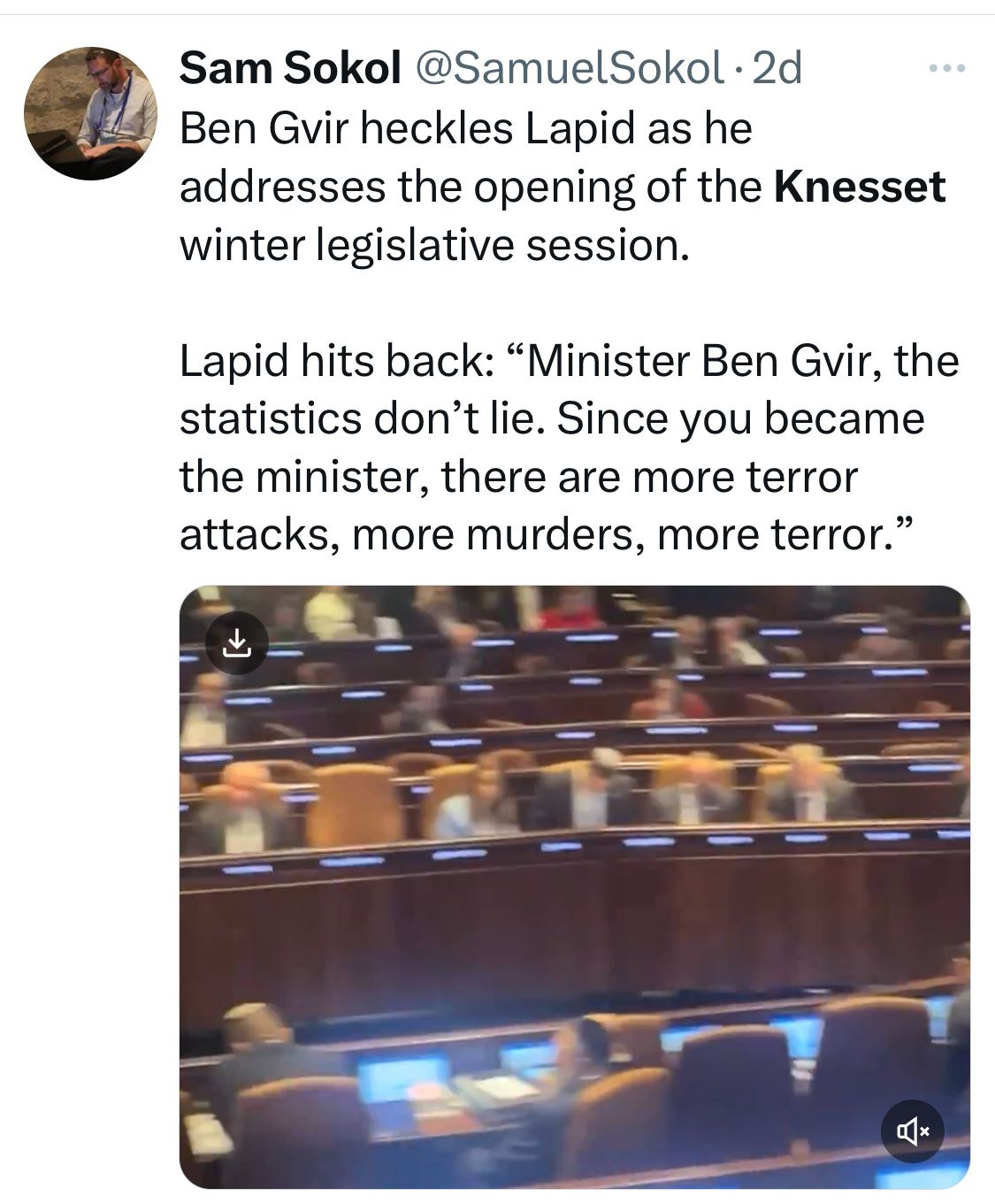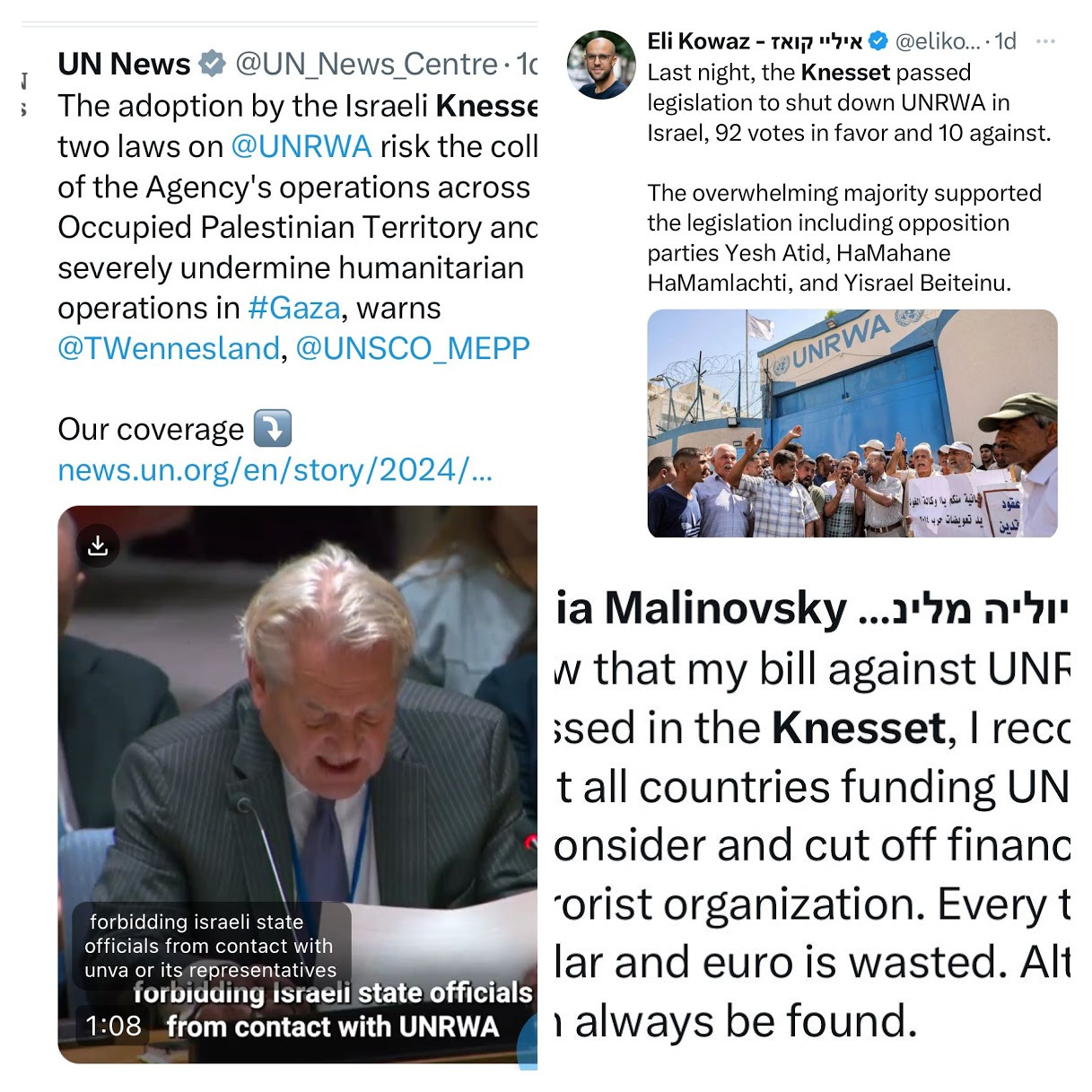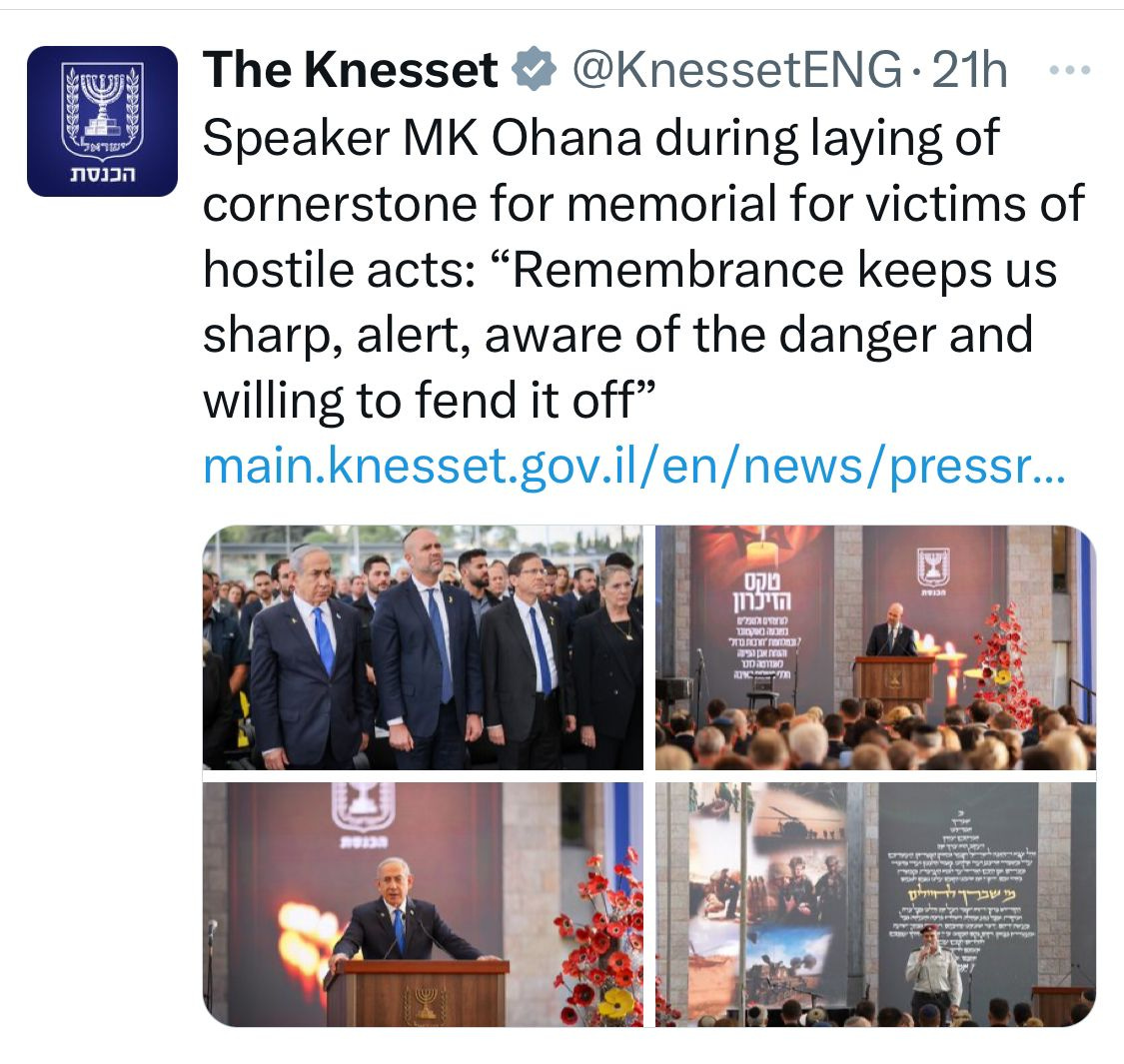Israel at War - Day 392
1. Israel Trying to Restart Hostage Negotiations Deal
A high-level Israeli delegation traveled to Qatar to meet with high-level officials from the US, Egypt, and Qatar in another effort to restart a further round of negotiations on a hostage deal. Head of Mossad, David Barnea, head of CIA William Burns, head of Egyptian secret services, and the ruler of Qatar convened earlier this week in Qatar. This is the first time in months, and the first time since the killing of Hamas leader Yahya Sinwar, that the parties have met. The Israeli media have labeled the new deal on the table as the “small deal”. It includes a ceasefire of 48 hours, and the release of 11-14 hostages and some Palestinian detainees who are currently held in Israel. This is being presented as a kickstarter for the bigger deal that may come later. It is important to say that Hamas keeps insisting that the only deal acceptable to the organization is a deal that will include a complete halt to the war, withdrawal of all Israeli forces from the whole Gaza Strip, release of Palestinian prisoners and detainees, and the release of all 101 Israeli hostages, dead or alive, who are still held in Gaza.
Many are very doubtful that this move will succeed, mainly because there was no Hamas representative at the table, it is still not clear who has been nominated to replace Sinwar, and what, if at all, is the decision-making process in Hamas, who makes decisions and how, now that its leadership has been killed.
Meanwhile, the Israeli army continues its intensive operations in the northern Gaza Strip. Tens of Palestinians have been killed in another attempt to “clean” the area from Hamas militants. Israel is also paying a high toll of human lives and injuries. The international community claims that Israel is executing a plan drafted by an ex-general, to empty northern Gaza from its civilians, then prevent any aid, food, and medicine from reaching the area, and kill everyone remaining under the assumption that if they stayed on, then they are Hamas members and militants. Israel denies the implementation of such a plan, but sources on the ground show that what is happening there indicates the opposite. It is important to say in this context that there is no independent media coverage of Gaza, only media reporting under the control of the IDF spokesperson. So it is difficulty to report a complete picture of the reality on the ground.
2. Israel Retaliates Against Iran
After long discussions with the Biden administration, long talks with Secretary of State Blinken who paid a recent visit to Israel, and exchanges of messages in an attempt by the Americans to limit the Israeli offensive operation, Israel struck targets in Iran last weekend. This was Israel’s response to the Iranian attack on Israel a few weeks ago. PM Netanyahu and other officials took all responsibility and announced the airstrike operation shortly after it began. According to unidentified sources, Israel managed to hit important and key strategic sites in Iran, mainly sites that are responsible for offensive mechanisms and units. American officials tried to prevent Israel from bombing nuclear sites and oil fields, in order to prevent an overall regional war. Israeli sources announced that the operation was a success, and only a handful of Iranians were killed in the attack. It is still unknown if Iran will decide to respond or not.
3. Knesset Winter Session Opens with Controversial Legislation
Following a prolonged summer and holiday recess, the Knesset winter session opened this week, with coalition led legislative initiatives designed to curb freedom of speech, freedom of the press, as well as the political participation and representation of Arab citizens. This, while hostages’ families and their supporters were determined to enter Knesset committees’ sessions to call for the release of their loved ones from Hamas captivity where they have been held for more than 390 days.
Among the bills passed in preliminary hearings are laws that give the state the authority to monitor TV channel ratings, instead of the current independent rating committee; a law that expands the police’s authority to launch an investigation against those suspected of support for terror groups or certain activities based on social media posts, and a law that gives the Knesset increased power to lower the bar for disqualifying candidates from running in the Knesset elections, and limiting the high court of justice’s authority to intervene in cases where parties are suspected of showing support for, incitement, or acts of terror against individuals. Members of the opposition and analysts warned that these legislative initiatives are a direct continuation of the judicial overhaul, aimed at undermining the independence of the judicial system and the media.
The Knesset also passed a law preventing the U.S. and other countries from opening a consulate in Jerusalem to serve Palestinians from East Jerusalem. The law, passed earlier this week, stipulates that consulates or official representations of foreign countries can only be established if their representatives have submitted their letters of credentials to Israel. However, analysts say that the law, passed just days before the U.S. presidential election, is intended to block Democratic candidate Vice President Kamala Harris from announcing the opening of a consulate for Palestinians in Jerusalem, if she wins the elections.
4. Israel Passes Anti UNRWA Legislation
The Israeli Knesset voted with a large majority to pass a new bill that outlawed the UN organization UNRWA. The United Nations Relief and Works Agency for Palestine was established shortly after Israels War of Independence in 1948, to take care of the hundreds of thousands of Palestinian refugees who were either expelled or decided to flee the war zone. The refugees were concentrated in Gaza, the West Bank, Lebanon, Jordan and Syria. UNRWA established an organiztion that provides the Palestinian refugees, in tens of refugees camps in the region, with food, medical clinics, and education for the children.
Since the October 7th Hamas attack on southern Israel, Israeli officials have claimed that UNRWA is not an independent organization and no longer functions as an aid organization for the refugees, but is rather a part of Hamas’ operational system. Israel provided evidence that shows some UNRWA employees took part in the massacre, or in other militant Hamas activities, and claimed that it considered UNRWA as part of Hamas. Earlier this week the Knesset passed a bill that outlaws UNRWA, forbids Israeli banks and other agencies from cooperating with the organization, forces the UN organization to close UNRWA offices in Jerusalem and has other implication for the organization. In addition, it will force the international community to decide how to provide aid to hundreds of thousands of Palestinian refugees in Gaza and the West Bank that are under the control of the Israeli army.
5. Israel Marks Second National Day of Mourning for The October 7th Fallen
On Sunday this week, Israel marked a second National Day of Mourning for the victims of the October 7th Hamas attack, held on the Hebrew date of the 25h of Tishrei, three days after the annual Simchat Torah holiday, which is when the Hamas attack took place a year ago. This, following a National Day of Mourning only three weeks ago. The government approved the commemoration of a second day of mourning, despite public criticism.
The day’s events started at 6:29 am, the hour that the Hamas attack on Gaza border communities began on October 7th, 2023. It included the lowering of the national flag to half-staff and two official memorial ceremonies at Mount Herzl, one for fallen soldiers and members of security forces, and a later one for fallen civilians. Both ceremonies were attended by PM Netanyahu, President Herzog, the Chief Justice of the Supreme Court, ministers, members of Knesset, the heads of the security system and the heads of the rescue organizations.
President Herzog, in his address at the ceremony for fallen soldiers, emphasized the need to seize the opportunity presented by the killing of Hamas leader Yahya Sinwar to reach a deal that will bring back the hostages. “the critical, supreme task still lies ahead of us — to urgently bring back the hostages from the hands of the murderers,” said president Herzog, adding that “the elimination of the arch-terrorist Sinwar and other enemies, and the impressive fighting by the IDF and security forces, have created an opportunity that we must not miss.”
PM Netanyahu, in his formal address, said: “A year ago we suffered a hard blow but we did not break. We fought back, and so we have been doing since then till today. We do not forget the hostages and are committed to returning both those still living and the deceased. We will not relent.” Many bereaved family members chose not to attend the formal ceremony, including two Gaza border kibbutzim, who announced ahead of the ceremony that they will not attend. Several bereaved family members interrupted the PM’s speech, calling “shame on you!” for his failure to prevent the Hamas attack.

